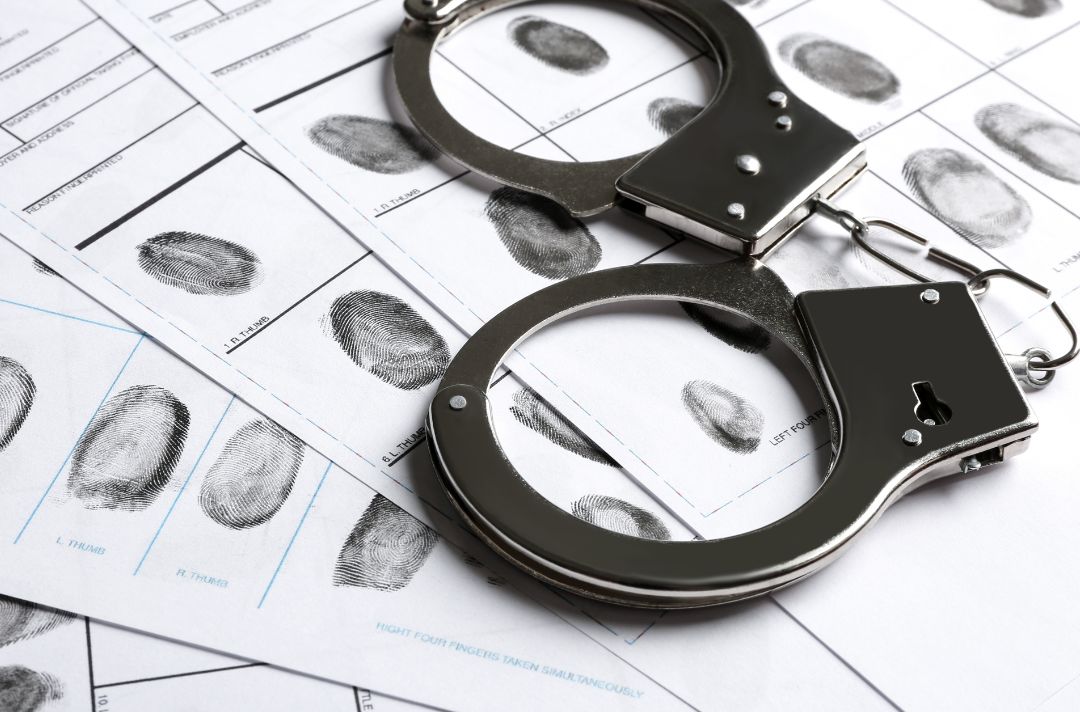
Expungement and Sealing of Criminal Records in the District of Columbia
When facing criminal charges, it is obviously of the utmost importance that you find an experienced, knowledgeable Washington DC criminal lawyer, like the attorneys at Ervin Kibria PLLC, to help you resolve any criminal charges against you and work to have the case come to a close and be finalized. Hopefully, if you have hired a skilled attorney, they will have the case come to a close in a disposition that is favorable to you, whether it be a dismissal outright, dismissal after diversion or plea agreement, or a dismissal at trial by a not guilty finding at trial. However, if you have already been convicted, you may be wondering how to expunge a criminal record in DC. This is a complex legal matter, and it is important to consult with an attorney to determine your eligibility and the best course of action.
While the terms “expunging” and “sealing” are often used interchangeably, there are, in fact, minor differences based on the formal definitions. “Expungement” (also called “expunction”) is defined as “the removal of a conviction from a person’s criminal record.” The “sealing of criminal records” is defined as “the act or practice of officially preventing access to particular records in the absence of a court order.”
Although people normally think of the term “expungement” to describe the process, “sealing” provides a more accurate description of what actually happens in D.C. It is not that the record is obliterated, erased, or wiped out, as suggested by the term “expungement.” Instead, the record is hidden from the public view. In both cases, expungement or sealing, the government still keeps a record of the arrest/conviction on file.
Obtaining A Copy of Your Criminal Record/History
According to D.C. Code § 2-1402.66, a person may request a copy of his or her arrest record to determine whether he or she is eligible to have that record “sealed” (i.e., hidden from public view.) You can check your record online here. For a certified copy of your criminal history, you should go to the 4th Floor of the Police District Building at 300 Indiana Avenue, NW.
Sealing An Arrest Record On The Grounds Of Actual Innocence
The quickest way to have an arrest record sealed in Washington, D.C. is to file a motion to seal on the grounds of actual innocence. D.C. Code § 16-802. In order to prevail under this type of motion, the person filing the motion must convince the judge either that the offense for which the person was arrested did not occur or that the offense did occur but that it was someone else who committed it. In the case of simple assault or theft, for example, the person submitting the motion might include an affidavit of the alleged victim confirming that the crime never occurred.
The standard of review a judge uses in considering the motion is a preponderance of the evidence (i.e., more likely than not) if filed within four years of the date the prosecution was terminated. If the motion is filed beyond 4 years of this date, the evidence must be clear and convincing; that is, highly probable or reasonably certain evidence.
This type of motion can be filed immediately after the termination of the prosecution and is eligible for relief under any type of offense, whether it be a felony or misdemeanor.
The effect of a judge granting this motion is to “restore” the person who filed the motion to the “status he or she occupied before being arrested or charged.” Thus, if anyone ever asks the person seeking the motion for any purpose whether or not he/she has ever been arrested or charged with a crime, the person can honestly and legally say “NO.” D.C. Code § 16-802.
Sealing An Arrest Record When Actual Innocence Cannot Be Asserted
For those who are not able to assert actual innocence when seeking how to expunge a criminal record in DC, the second way to have an arrest record sealed is to wait a period of time (2 years for “eligible misdemeanors,” 3 years for ineligible misdemeanors that were never papered, and four years for every other offense) before filing the motion. Any open cases or any convictions after the arrest for which relief is sought will, however, render a person ineligible for such relief.
For cases that fall under the “eligible misdemeanors” category (see below) category, the burden is on the prosecution to establish by a preponderance of the evidence that it is not in the interests of justice to grant relief. For all other offenses, the burden is on the person filing the motion to prove by a preponderance of the evidence that it is in the interests of justice to grant the motion.
If the motion to seal is granted under these circumstances, the person subject to the relief is able to honestly and legally deny the arrest or charge to anyone other than (1) any court, (2) any federal, state, or local prosecutor, (3) any law enforcement agency, (4) any licensing agency, (5) any licensed school, daycare center, or other facility involving children, (6) any government employer or nominating/tenure commission with respect to employment of a judicial or quasi-judicial officer or employment at a senior-level, executive-grade government position. D.C. Code § 16-803.
Ineligible Misdemeanors
“Eligible misdemeanor” is any misdemeanor that is NOT included in the following list:
- Intrafamily offense as defined under D.C. Code § 16-1001(8)
- Driving while intoxicated, driving under the influence, or operating while impaired under D.C. Code § 50-2201.05
- Any misdemeanor offense for which sex offender registration is required under Chapter 40 of Title 22
- Criminal abuse of a vulnerable adult under D.C. Code § 22-936(a)
- Interfering with access to a medical facility under D.C. Code § 22-1314.02
- Possession of a pistol by a convicted felon under D.C. Code § 22-4503(a)(1)
- Failure to report child abuse under D.C. Code § 4-1321.07
- Refusal or neglect of guardian to provide for a child under 14 years of age under D.C. Code § 22-1102
- Disorderly conduct (“peeping tom”) under D.C. Code § 22-1321
- Misdemeanor sexual abuse under D.C. Code § 22-3006
- Violating the Sexual Offender Registration Act under D.C. Code § 22-4015
- Violating child labor laws under D.C. Code §§ 32-201 through 22-224
- Election/petition fraud under D.C. Code § 1-1001.08
- Public assistance fraud under D.C. Code §§ 4-218.01 through 4.218.05
- Trademark counterfeiting under D.C. Code § 22-902(b)(1)
- Attempted trademark counterfeiting under D.C. Code §§ 22-1803, 22-902
- Fraud in the second degree under D.C. Code § 22-3222(b)(2)
- Attempted fraud under D.C. Code §§ 22-1803, 22-3222
- Credit card fraud under D.C. Code § 22-3223(d)(2)
- Attempted credit card fraud under D.C. Code §§ 22-1803, 22-223 [§§ 22-1803, 22-3223)
- Misdemeanor insurance fraud under D.C. Code § 22-3225.03(a)
- Attempted insurance fraud under D.C. Code §§ 22-1803, 22-3225.02, 22-3225.03
- Telephone fraud under D.C. Code §§ 22-3226.06, 22-3226.10(3)
- Attempted telephone fraud under D.C. Code §§ 22-1803, 22-3226.06, 22-3226.10
- Identity theft, second degree, under D.C. Code §§ 22-3227.02, 22-3227.03(b)
- Attempted identity theft under D.C. Code §§ 22-1803, 22-3227.02, 22-3227.03
- Fraudulent statements or failure to make statements to employees under D.C. Code § 47-4101
- Fraudulent withholding of information or failure to supply information to an employer under D.C. Code § 47-4105
- Fraud or false statements under D.C. Code § 47-4106
- False statement/dealer certificate under D.C. Code § 50-1501.04(a)(3)
- No school bus driver’s license under 18 DCMR §1305.1
- False statement on Department of Motor Vehicles document under 18 DCMR § 1104.1
- No permit, a second or greater offense under D.C. Code 50.1401.01(d)
- The altered title under 18 DCMR § 1104.3
- Altered registration under 18 DCMR § 1104.4
- No commercial driver’s license under D.C. Code § 50-405
- Violation of building or housing code regulations
- Violation of the Public Utility Commission regulations
- Attempt or conspiracy to commit any of the offenses above.
When seeking to expunge a criminal record in DC, it is very important to talk with an attorney with extensive experience sealing/expunging criminal records.




